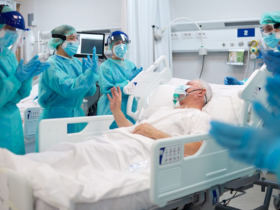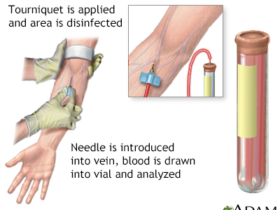Creatine is one of the fitness industry’s most popular and widely researched supplements. Known for its ability to enhance athletic performance, increase muscle mass, and boost strength, it has become a staple in the regimen of many athletes and bodybuilders. However, a question often arises about creatine supplementation: whether it can cause hair loss. This comprehensive review delves into the evidence to answer the question: Does creatine cause hair loss?

Understanding Creatine
Creatine is a naturally occurring compound found in muscle cells. It helps produce energy during high-intensity exercise or heavy lifting. While creatine can be obtained from dietary sources like red meat and fish, supplementation is often used to achieve higher concentrations in the body, enhancing athletic performance and muscle growth.
The Mechanism of Action: How Creatine Works
Creatine increases the production of adenosine triphosphate (ATP), the primary energy carrier in cells. During short bursts of intense activity, ATP is rapidly depleted. Creatine helps replenish ATP levels, allowing for sustained performance and reduced fatigue. This mechanism makes it particularly effective for activities that require explosive energy, such as sprinting, weightlifting, and high-intensity interval training.
The Link Between Creatine and Hair Loss: Origins of the Concern
The concern about creatine and hair loss primarily stems from a 2009 study conducted on rugby players. The study suggested that creatine supplementation might increase dihydrotestosterone (DHT) levels, a hormone linked to hair loss in individuals genetically predisposed to male pattern baldness. DHT is a derivative of testosterone known to shrink hair follicles, leading to thinner hair and, eventually, hair loss.
Examining the Evidence: What Studies Say
To understand whether creatine causes hair loss, it’s essential to review the existing scientific literature:
The 2009 Study on Rugby Players
The study, often cited in discussions about creatine and hair loss, involved 20 male rugby players. They were given a loading dose of creatine for seven days and a maintenance dose for an additional 14 days. The results showed a significant increase in DHT levels after the loading phase, which remained elevated during the maintenance phase.
However, several factors must be considered before concluding:
- Sample Size: The study’s sample size was small (only 20 participants), making it difficult to generalize the results to the broader population.
- Duration: The study only covered a short period (21 days). The long-term effects of creatine on DHT levels and hair loss were not examined.
- Genetic Predisposition: The study did not account for participants’ genetic predisposition to hair loss, which is a critical factor in determining the impact of DHT on hair follicles.
Subsequent Research
Subsequent research has not consistently supported the findings of the 2009 study. For instance, a review published in the Journal of the International Society of Sports Nutrition (2012) found no evidence to suggest that creatine supplementation leads to increased hair loss. Other studies have focused on the broader effects of creatine on health and athletic performance, but hair loss has not been a significant focus in most of these studies.

Understanding DHT and Hair Loss
To further clarify the potential link between creatine and hair loss, it’s essential to understand the role of DHT. DHT is an androgen, a type of hormone that contributes to the development of male characteristics. While DHT is important for overall health, its effect on hair follicles can be detrimental in individuals genetically predisposed to androgenetic alopecia (male pattern baldness).
- Genetic Factors: Genetics play a crucial role in determining an individual’s sensitivity to DHT. Those with a family history of male pattern baldness are more likely to experience hair loss due to elevated DHT levels.
- DHT Production: Not everyone produces the same amount of DHT. Factors like age, overall health, and hormonal balance can influence DHT levels in the body.
Personal and Anecdotal Evidence
In addition to scientific studies, personal and anecdotal evidence can provide insights into the potential link between creatine and hair loss. Many individuals who use creatine report no adverse effects on their hair. Conversely, some people may experience hair thinning, but it’s essential to consider other variables such as genetics, stress, diet, and overall health.
Expert Opinions
Many sports nutrition and dermatology experts argue that the link between creatine and hair loss is not well-established. According to Dr. Alan Bauman, a prominent hair restoration physician, there is insufficient evidence to conclude that creatine directly causes hair loss. Dr. Bauman emphasizes the importance of considering genetic predisposition and other underlying factors.
Dr. Jose Antonio, CEO of the International Society of Sports Nutrition, supports this view. He points out that the rise in DHT levels observed in the 2009 study does not necessarily translate to increased hair loss, particularly over a more extended period.
Managing Hair Health While Using Creatine
For those concerned about potential hair loss but still wanting to benefit from creatine supplementation, some steps can be taken to mitigate risks:
- Monitor Hair Health: Regularly check for signs of hair thinning or shedding. Early detection can help manage hair loss more effectively.
- Maintain a Healthy Diet: Ensure a balanced diet rich in vitamins and minerals that support hair health, such as biotin, zinc, and omega-3 fatty acids.
- Consult a Professional: If you notice significant hair loss, consult a dermatologist or a trichologist to discuss potential causes and treatment options.
- Genetic Testing: Consider genetic testing to determine your predisposition to androgenetic alopecia. This can provide insights into how your body might respond to changes in DHT levels.

Conclusion
The question, “Does creatine cause hair loss?” does not have a straightforward answer. While the 2009 study on rugby players suggested a potential link between creatine supplementation and increased DHT levels, subsequent research has not consistently supported these findings. The role of genetic predisposition and other individual factors cannot be overlooked.
For most individuals, creatine remains a safe and effective supplement for enhancing athletic performance and muscle growth. However, those with a family history of male pattern baldness or concerns about hair loss should monitor their hair health and consult healthcare professionals as needed. Taking a proactive approach allows one to enjoy the benefits of creatine while minimizing the risk of adverse effects on hair health.

















Got a Questions?
Find us on Socials or Contact us and we’ll get back to you as soon as possible.